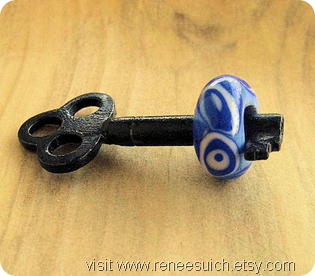Think about planting everbearing strawberries in your garden, especially if you have small children. Kids really enjoy plucking snacks directly from the ground, and may have greater enthusiasm for the work if they see the results of their labor right away.
One of the tenets of organic gardening is to focus on the garden and to tend it well. A little extra gardening know-how doesn’t hurt either. Doing so will increase both the quantity and the quality of the produce you grow in your organic garden. The tips in this article should start you on the road to doing just that with a successful organic garden.
When helping organic plants flourish inside, it is vital to keep in mind how much light is reaching them. Almost every type of plant you grow requires ample sunlight, so think about how much natural light you home receives or if you perhaps need to supplement with UV lamps. Using UV lamps is a great way to grow an organic garden anywhere.
You should teach your children how to garden alongside you. An organic garden will help your child learn more about plants and insects, and it’s a wonderful bonding time while growing healthy produce.
Use several inches of organic materials for mulch in your flower beds. This is a good way to keep weed growth at bay and add nutrients that you need in your garden. This will also make your flowers appear beautiful and finished all year long.
Be sure you plant strawberries in your garden for your children, you want to make sure you especially plant everbearing strawberries as well. Your children will enjoy being able to pick strawberries and will be ready to help you if they can get something sweet to eat.
Spacing is an important factor to consider when planting your garden. You must think of how much room the plants will take up as they grow, and it easy to underestimate this. Proper spacing is important not just to accommodate the plants’ sizes but also for air circulation. Plan your garden carefully and leave enough space between the seeds.
Perennial gardens should be prepared easily and quickly in the ground. All you need to do is use a garden spade to slice under the turf, flip it over, then spread wood chips over the area about three to four inches deep. You want to then give the area about a couple of weeks, then you want your new perennials planted by digging into it.
When you’re making a compost pile, you should use fresh and dried plants to get it started. “Green” material refers to things like wilted flowers, weeds, leaves from your yard, and grass clippings. Dried plant material consists of sawdust, shredded paper, cardboard, straw, and cut-up and dried wood material. Avoid using animal manure, charcoal or diseased plants in your compost.
To be more efficient when working in your organic garden, have your tools close at hand. You can keep them in a good sized bucket, or wear utility pants that have plenty of large pockets. Have gloves, shears, a trowel and anything else you need handy for quick use.
Organic foods don’t contain any chemical pesticides. This is great for the health of your family, but you will still have to regularly check your plants for bugs and pests.
Your seeds, once they begin sprouting, don’t need the same amount of warmth as they did before. As your plants grow, move them away from the source of heat. You must also take away plastic films from your containers in order to keep the warmth and humidity out. Watch your seeds carefully to know when you can take these steps.
Find out more about botanical insecticides to get rid of the pest. Sometimes the natural insecticides can be even more powerful than the engineered synthetic pesticides on the market. Due to the way they are made, you may have to use more of a botanical insecticide.
Organic Gardening
Using a soaker hose to water your organic garden is the best method. This special type of hose allows water to slowly ooze out; the water then directly targets the roots and spares the leaves. These use much less water than the sprinklers and are less time-consuming than hand-watering your plants.
Organic gardening makes a huge difference in the taste and freshness of your produce. Organic gardening takes patience and manual labor, but it’s worth it when you start reaping the benefits of your labor.
Think carefully about any product you buy to use in your garden. Rather than dousing your garden with chemical fertilizers, use an organic alternative. A great example is to use compost. Organic materials hold many advantages over chemical methods. Chemicals tend to build up in the soil, which can leach into the drinking water.
